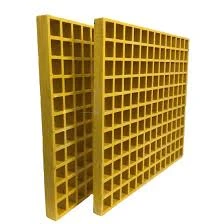
-
 Afrikaans
Afrikaans -
 Albanian
Albanian -
 Amharic
Amharic -
 Arabic
Arabic -
 Armenian
Armenian -
 Azerbaijani
Azerbaijani -
 Basque
Basque -
 Belarusian
Belarusian -
 Bengali
Bengali -
 Bosnian
Bosnian -
 Bulgarian
Bulgarian -
 Catalan
Catalan -
 Cebuano
Cebuano -
 China
China -
 China (Taiwan)
China (Taiwan) -
 Corsican
Corsican -
 Croatian
Croatian -
 Czech
Czech -
 Danish
Danish -
 Dutch
Dutch -
 English
English -
 Esperanto
Esperanto -
 Estonian
Estonian -
 Finnish
Finnish -
 French
French -
 Frisian
Frisian -
 Galician
Galician -
 Georgian
Georgian -
 German
German -
 Greek
Greek -
 Gujarati
Gujarati -
 Haitian Creole
Haitian Creole -
 hausa
hausa -
 hawaiian
hawaiian -
 Hebrew
Hebrew -
 Hindi
Hindi -
 Miao
Miao -
 Hungarian
Hungarian -
 Icelandic
Icelandic -
 igbo
igbo -
 Indonesian
Indonesian -
 irish
irish -
 Italian
Italian -
 Japanese
Japanese -
 Javanese
Javanese -
 Kannada
Kannada -
 kazakh
kazakh -
 Khmer
Khmer -
 Rwandese
Rwandese -
 Korean
Korean -
 Kurdish
Kurdish -
 Kyrgyz
Kyrgyz -
 Lao
Lao -
 Latin
Latin -
 Latvian
Latvian -
 Lithuanian
Lithuanian -
 Luxembourgish
Luxembourgish -
 Macedonian
Macedonian -
 Malgashi
Malgashi -
 Malay
Malay -
 Malayalam
Malayalam -
 Maltese
Maltese -
 Maori
Maori -
 Marathi
Marathi -
 Mongolian
Mongolian -
 Myanmar
Myanmar -
 Nepali
Nepali -
 Norwegian
Norwegian -
 Norwegian
Norwegian -
 Occitan
Occitan -
 Pashto
Pashto -
 Persian
Persian -
 Polish
Polish -
 Portuguese
Portuguese -
 Punjabi
Punjabi -
 Romanian
Romanian -
 Russian
Russian -
 Samoan
Samoan -
 Scottish Gaelic
Scottish Gaelic -
 Serbian
Serbian -
 Sesotho
Sesotho -
 Shona
Shona -
 Sindhi
Sindhi -
 Sinhala
Sinhala -
 Slovak
Slovak -
 Slovenian
Slovenian -
 Somali
Somali -
 Spanish
Spanish -
 Sundanese
Sundanese -
 Swahili
Swahili -
 Swedish
Swedish -
 Tagalog
Tagalog -
 Tajik
Tajik -
 Tamil
Tamil -
 Tatar
Tatar -
 Telugu
Telugu -
 Thai
Thai -
 Turkish
Turkish -
 Turkmen
Turkmen -
 Ukrainian
Ukrainian -
 Urdu
Urdu -
 Uighur
Uighur -
 Uzbek
Uzbek -
 Vietnamese
Vietnamese -
 Welsh
Welsh -
 Bantu
Bantu -
 Yiddish
Yiddish -
 Yoruba
Yoruba -
 Zulu
Zulu
Fiberglass Rectangular Water Storage Tanks for Efficient Liquid Containment Solutions
The Versatility of Fiberglass Rectangular Tanks
Fiberglass rectangular tanks have gained popularity across various industries due to their unique properties and numerous advantages. These tanks are commonly used for storage and transportation purposes, offering durability, resistance to corrosion, and lightweight solutions.
One of the primary benefits of fiberglass as a material is its exceptional durability. Unlike traditional materials such as steel or concrete, fiberglass is less prone to rust and corrosion. This makes fiberglass rectangular tanks ideal for storing substances that can be corrosive, such as chemicals, sewage, or agricultural products. Additionally, fiberglass tanks can withstand a wide range of temperatures, making them suitable for both hot and cold applications. This versatility enables industries such as petrochemical, water treatment, and agriculture to rely on fiberglass tanks for their various storage needs.
Another significant advantage of fiberglass tanks is their lightweight nature. Fiberglass is a composite material that is easy to transport and handle, especially when compared to heavier materials like metal or concrete. This feature not only saves on shipping costs but also reduces the need for complex support structures during installation. As such, fiberglass rectangular tanks can be installed in locations where traditional tanks might be impractical due to weight constraints.
fiberglass rectangular tank

Furthermore, fiberglass tanks can be customized to meet specific requirements. They can be manufactured in various sizes and configurations, allowing for tailored solutions that fit the unique needs of a project. Whether a business requires a small tank for residential use or large tanks for industrial applications, fiberglass can accommodate those specifications. The rectangular shape is particularly advantageous for optimizing space, allowing for efficient layout in facilities where every square foot counts.
Additionally, fiberglass tanks require minimal maintenance, making them cost-effective in the long run. Unlike metal tanks that may require frequent protective coatings, fiberglass tanks naturally resist the elements. This not only reduces the frequency of repairs but also minimizes the potential for leaks, protecting the surrounding environment from contamination.
Moreover, the smooth, non-porous surface of fiberglass tanks offers excellent resistance to biological growth, reducing the likelihood of algae or other contaminants developing within the tank. This property is particularly important in applications involving water storage, as it ensures the quality of the water being stored and maintains safety standards for drinking water and agricultural uses.
In summary, fiberglass rectangular tanks present a robust, versatile, and efficient solution for various storage needs across multiple industries. Their advantages, including corrosion resistance, lightweight design, customizability, low maintenance requirements, and hygienic properties, make them an ideal choice for businesses looking to enhance operational efficiency while reducing costs. As industries continue to innovate and prioritize sustainability, the role of fiberglass tanks is likely to grow even more significant. Their ability to meet the demanding requirements of modern storage solutions ensures they will remain a staple in various applications for years to come. Whether for industrial, agricultural, or residential use, fiberglass rectangular tanks represent a smart investment that reflects the evolving landscape of storage technology.









